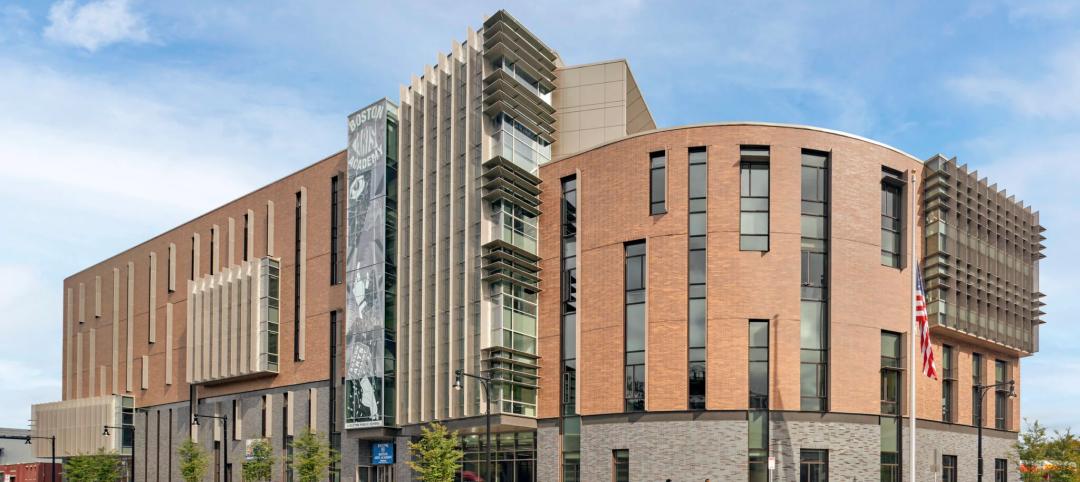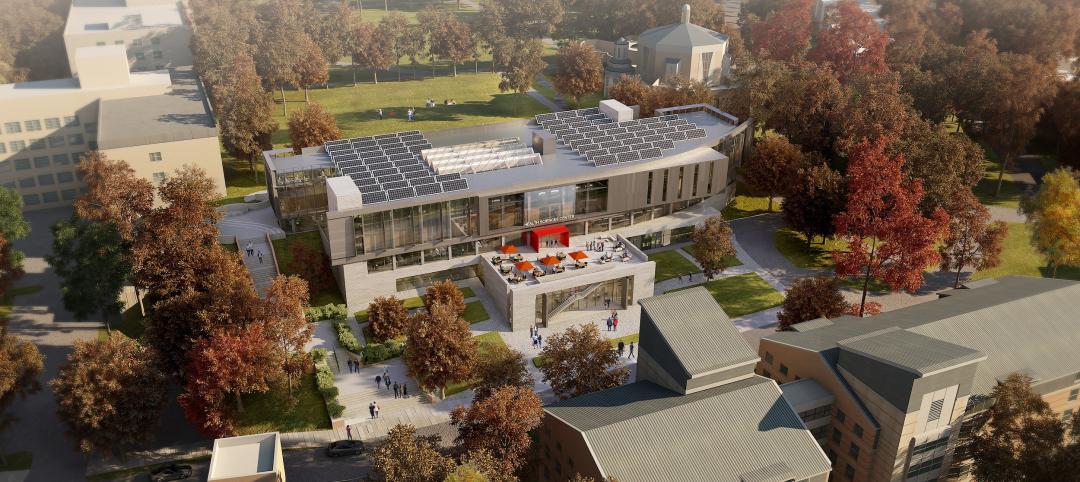DALLAS – Schneider Electric, a global specialist in energy management, announced a project with North Carolina State University to improve energy efficiency and drive sustainable, clean energy projects in 1.6 million square feet of building space across 13 campus facilities. As part of a $20 million performance contracting project, the university will implement 89 separate energy conservation measures (ECMs). Upon completion of the installation, NC State University will save approximately 10,137,668 kilowatt hours of electricity and 68,785 decatherms of natural gas annually, which is equivalent to planting 80,376 acres of trees or removing 43,158 cars from the roads over the next 15 years.
The performance contract with Schneider Electric is helping the university fast-track backlogged building upgrades, and also to meet the requirements of Senate Bill 668 and the President’s Advisory Committee on Efficiency and Effectiveness (PACE) set forth by former University of North Carolina President Erskine Bowles to drive energy efficiency improvements on campuses across the state. The project is leveraging NC State University’s expertise in engineering and energy efficiency by tapping more than 10 alumni personnel and one senior engineering student at NC State University in development and construction of the project.
“At NC State University, we’re committed to building a sustainable campus, an effort that drives energy efficiency while offering a state-of-the-art learning environment for students,” said Kevin McNaughton, associate vice chancellor for facilities. “Through performance contracting, we’re able to take on these projects immediately without incurring cost to the taxpayer or the students. We are confident this strategy will reduce continuing costs, provide for better facilities to support education and research, and substantially reduce our carbon footprint."
As part of phase one, a Schneider Electric partner has completed installation of a solar-thermal system on the roof of the NC State University campus gym, Carmichael Complex. Once in operation, the system will help heat nearly one million gallons of water in two swimming pools. The clean energy project features 112 solar panels, each measuring 10 feet by 4 feet, and can heat water to approximately 100 degrees as it is circulated onto the roof and piped through the solar facility.
“Through this performance contract, we are helping the university gain critical insight into energy use and manage energy resources more effectively,” said James Potach, Energy Solutions senior vice president, Schneider Electric. “We’re helping the university achieve its ACUPCC objectives by implementing an energy efficiency project that will make a significant contribution toward reducing the carbon footprint on campus." The American College & University Presidents’ Climate Commitment is a high-visibility effort to address global climate disruption undertaken by a network of colleges and universities that have made institutional commitments to eliminate net greenhouse gas emissions from specified campus operations, and to promote the research and educational efforts of higher education to equip society to re-stabilize the earth’s climate.
About Schneider Electric
As a global specialist in energy management with operations in more than 100 countries, Schneider Electric offers integrated solutions across multiple market segments, including leadership positions in energy and infrastructure, industrial processes, building automation, and data centers/networks, as well as a broad presence in residential applications. Focused on making energy safe, reliable, and efficient, the company's 110,000 plus employees achieved sales of more than $26 billion in 2010, through an active commitment to help individuals and organizations “Make the most of their energy.”
Related Stories
Codes and Standards | Jun 6, 2023
California’s new power grid modernization plan furthers ambitious climate goals
California’s new $7.3 billion grid modernization plan is a crucial step in furthering its ambitious climate goals. The board of governors for the California Independent System Operator (CAISO), the state’s grid operator, recently approved a strategy to build thousands of miles of new high-voltage transmission lines.
Multifamily Housing | Jun 6, 2023
Minnesota expected to adopt building code that would cut energy use by 80%
Minnesota Gov. Tim Walz is expected to soon sign a bill that would change the state’s commercial building code so that new structures would use 80% less energy when compared to a 2004 baseline standard. The legislation aims for full implementation of the new code by 2036.
K-12 Schools | May 25, 2023
From net zero to net positive in K-12 schools
Perkins Eastman’s pursuit of healthy, net positive schools goes beyond environmental health; it targets all who work, teach, and learn inside them.
Mass Timber | May 23, 2023
Luxury farm resort uses CLT framing and geothermal system to boost sustainability
Construction was recently completed on a 325-acre luxury farm resort in Franklin, Tenn., that is dedicated to agricultural innovation and sustainable, productive land use. With sustainability a key goal, The Inn and Spa at Southall was built with cross-laminated and heavy timber, and a geothermal variant refrigerant flow (VRF) heating and cooling system.
Office Buildings | May 15, 2023
Sixteen-story office tower will use 40% less energy than an average NYC office building
This month marks the completion of a new 16-story office tower that is being promoted as New York City’s most sustainable office structure. That boast is backed by an innovative HVAC system that features geothermal wells, dedicated outdoor air system (DOAS) units, radiant heating and cooling, and a sophisticated control system to ensure that the elements work optimally together.
Headquarters | May 9, 2023
New Wells Fargo development in Texas will be bank’s first net-positive campus
A new Wells Fargo development in the Dallas metroplex will be the national bank’s first net-positive campus, expected to generate more energy than it uses. The 850,000-sf project on 22 acres will generate power from solar panels and provide electric vehicle charging stations.
University Buildings | May 5, 2023
New health sciences center at St. John’s University will feature geothermal heating, cooling
The recently topped off St. Vincent Health Sciences Center at St. John’s University in New York City will feature impressive green features including geothermal heating and cooling along with an array of rooftop solar panels. The geothermal field consists of 66 wells drilled 499 feet below ground which will help to heat and cool the 70,000 sf structure.
Multifamily Housing | Apr 17, 2023
World's largest multifamily building pursuing ILFI Zero Carbon certification under construction in Washington, D.C.
The Douglass, in Washington, D.C.’s Ward 8, is currently the largest multifamily housing project to pursue Zero Carbon Certification from the International Living Future Institute (ILFI).
Energy Efficiency | Apr 7, 2023
Department of Energy makes $1 billion available for states, local governments to upgrade building codes
The U.S. Department of Energy is offering funding to help state and local governments upgrade their building codes to boost energy efficiency. The funding will support improved building codes that reduce carbon emissions and improve energy efficiency, according to DOE.
Cladding and Facade Systems | Apr 5, 2023
Façade innovation: University of Stuttgart tests a ‘saturated building skin’ for lessening heat islands
HydroSKIN is a façade made with textiles that stores rainwater and uses it later to cool hot building exteriors. The façade innovation consists of an external, multilayered 3D textile that acts as a water collector and evaporator.
















